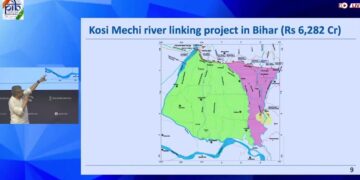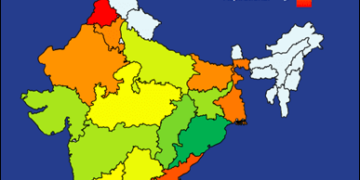Congress leader Rahul Gandhi’s recent endorsement of Telangana’s caste survey as a “model” for the country has triggered discontent within the INDIA opposition bloc, especially with the Rashtriya Janata Dal (RJD), a key Congress ally in Bihar. The controversy comes as the Centre announces plans to include caste enumeration in the upcoming national Census, intensifying the spotlight on how different states have approached caste surveys.[2][6][9]
Key Differences Between Telangana and Bihar Caste Surveys
- Survey Depth: Telangana’s survey featured 57 main questions and 18 sub-questions, while Bihar’s survey asked just 17 questions. Telangana’s approach was described as more “detailed and granular”, seeking information on issues such as discrimination faced by marginalised communities.[2][6]
- Data Collection: Telangana used pen-and-paper questionnaires before digital entry, while Bihar’s enumerators entered data directly into a government mobile app.[2][6]
- Self-Reporting: Both states relied on self-identification for caste, without requiring documentary proof.[2]
- Economic Data: Both surveys collected information on income and material possessions, but officials acknowledged the risk of underreporting or misreporting due to expectations of government benefits.[2]
Political Fallout: RJD Voices Dismay
Rahul Gandhi’s remarks have upset the RJD, which played a pivotal role in Bihar’s 2022-23 caste survey under the Mahagathbandhan government. While Gandhi called Telangana’s survey a “blueprint” for the national exercise, some Congress leaders went further, labelling Bihar’s survey “bogus”. RJD leaders criticised these comments, arguing they undermine their campaign ahead of the Bihar Assembly elections and strain alliance unity.[2]
Context: Caste Census and Political Stakes in Bihar
- Bihar was the first state to demand a caste census and conducted its own survey after the Centre initially declined.[4][8]
- The Bihar survey found OBCs and EBCs make up over 63% of the population, leading to a proposed increase in reservations to 65%. However, these moves have faced legal challenges.[4][8]
- The Centre’s recent decision to conduct a caste census is seen as a response to mounting political pressure and the growing salience of social justice issues.[7][9]
Implications for Readers
- For Bihar voters: The debate may influence campaign narratives and alliance dynamics ahead of the state elections.
- For OBC/EBC communities: The credibility and design of caste surveys could affect future reservation policies and welfare schemes.
- For policymakers: The Telangana model may inform the national approach, but concerns about transparency, accuracy, and political motives remain.
Actionable Takeaway: Residents should stay informed about how caste data is collected and used, as it may impact representation, government benefits, and social policy in Bihar and beyond.


















